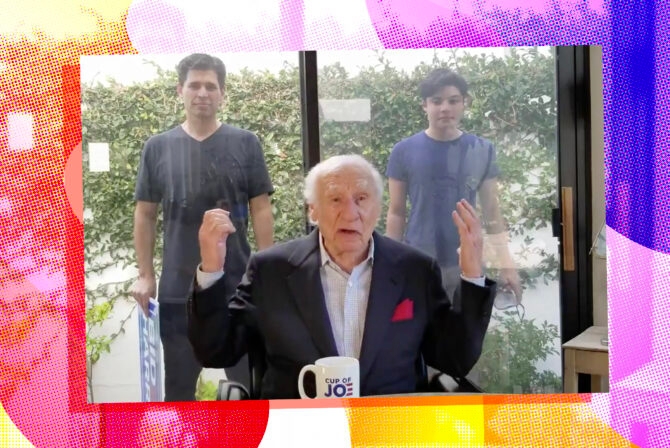派对礼服 - 他们还是一件事吗?婚礼,酒吧and bat mitzvahs, and even funerals all relocated to Zoom, one wonders when we’ll ever get dressed up again. But does it hurt to hope?
The other day, while meandering through eBay’s virtual aisles, avoiding my latest writing project, I found a dress. Not justadress butthedress: a black velvet bodice and a flounced plaid silk skirt. It looked like somethingMeghan Marklemight have worn had she stayed with the royals. Best of all, with its long sleeves and high neck,这件裙子是both stylish and uncompromisingly modest.
The price? A mere $55, a fraction of its original cost when it began its life at Brooks Brothers.
现在来了大问题:买或不买。礼服didfill a wardrobe gap. Early in thevirus’s first wave, during a moment of despair-tinged philanthropy, I donated my previous party dress, black velvet and chiffon number from Eileen Fisher, to a needy friend. In those days, the notion of physically attending celebrations felt very, very far away. But what about now?
Until Israel entered its second lockdown on September 18, my friends and neighbors had partied in real life from a social distance. Just six weeks ago, I attendeda bar mitzvah. There were tiny tables scattered across a dark garden and individually wrapped, handmade petite fours in place of a buffet table. Clearly, the hostess had bent over backwards to adhere to the rules but did it work? When I walked in, the guests were schmoozing at dangerously close range, theirmasks dangling at their chins. Perhaps that’s why we’ve hit a second wave.
But back to the dress. Lacking clarity as to when I may have an occasion to wear it, I decided to gamble. I figure I’d offer the seller $20 —a sum paltry enough that if it languished inmy closetI wouldn’t feel too guilty about it. I reasoned that, most likely, the seller would leave me hanging for a day or so and then refuse my offer — by which time I’d have lost my enthusiasm for the dress.
It was a perfect plan, except that it didn’t happen that way. To my surprise, the seller answered right away. “Congratulations,” she told me,” the dress is yours.”
For a moment, I reveled in my own bargaining skills — after all, I’d successfully driven the price道路down. But after the thrill faded, I was left with a severe case of buyers’ remorse. What justification did I have for buying this dress? With continual新爆发and no vaccine in sight, did I really believe I’d be dancing at weddings by winter?
Confused, I decided to see if Judaism had any wisdom to shine on this dilemma.
I knew that inPirkei Avot或者父亲的伦理,塔比斯的拉比歌词汇编,它据说每天都在每天都好像是你的最后一个。在那种情况下,有人敢敢买一件衣服?谁需要一件新衣服,如果它是他们在地球上的最后一天?然后,如果这是你的最后一天,为什么不spend it wearing a beautiful new dress?
Then, my mind flashed back to the before times: Back in the spring of 2019, I took a tour toRabbi Nachman of Bratslav‘s grave in Ukraine. Relaxing in Uman’s beautiful Sofia Gardens, an arboretum in the northern part of the town, one of my fellow travelers told me how she had bought a new wig to wear to herdaughter’s wedding,在新郎出现之前。“拉比纳赫曼说,当你这样做时,你就会开放祝福流动,”她说。称之为神圣想象力的教义。
At the time, I found the idea both exciting and a bit delusional. Certainly it was something I thought I’d never do. But now I wonder: Is this why I bought the dress andmatching shoes? (Yes, I couldn’t resist — the black patent leather pumps with a kitten heel were a perfect match.)
There’s an old Yiddish proverb that goes,“Tracht gut vet zein gut” — “Think good and it will be good.” This upbeat message has long resonated with me, and perhaps it’s why I took the plunge and bought the dress.
Someday, hopefully soon, I’ll wear them to a son’s engagement, agrandson’s bris, or maybe I’ll wear them on a great day we are all waiting for: the day this accursed plague leaves us. As they say,halevai—如果只是它应该是这样的。那天可能很快就来了。
Marisalia / Getty Images的标题图像








